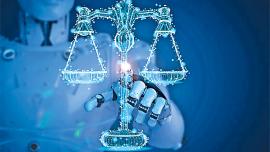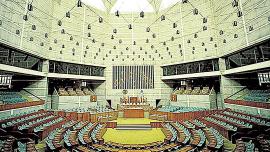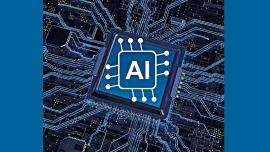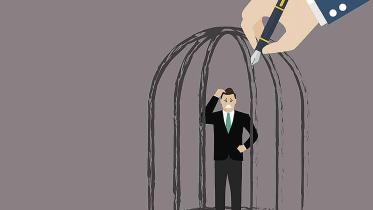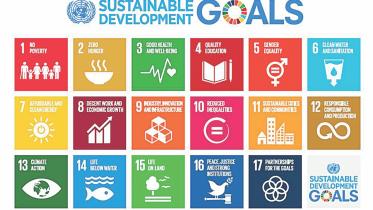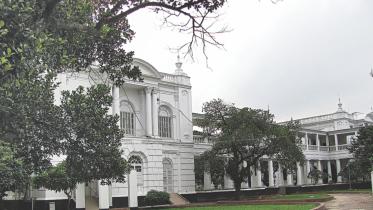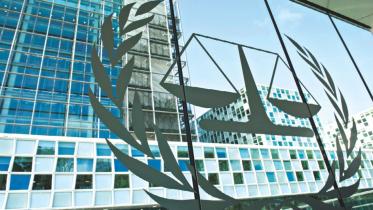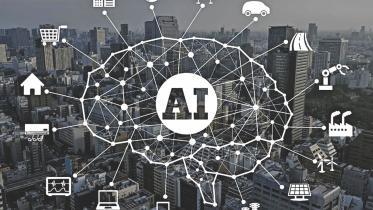Law Vision / Artificial Intelligence and the court
21 October 2025, 18:00 PM
Law vision / Regulating battery-run rickshaws
4 October 2025, 18:00 PM
Law Vision / Bangladesh’s Constitutional Crossroads: The Imperative of a New Charter
22 July 2025, 18:00 PM
FDI in Bangladesh: A Supplement to BIDA’s recent Investment Summit
9 May 2025, 18:00 PM
Law vision / Problems and Prospects of ADR in Bangladesh
27 March 2025, 18:00 PM
Law Advocacy / Judges’ appointment in Bangladesh
6 February 2025, 18:00 PM
LAW VISION / Rethinking our parliamentary accountability
15 August 2024, 18:00 PM
LAW VISION / An Overview of Bangladesh National Artificial Intelligence Policy 2024
18 April 2024, 18:00 PM
RIGHTS VISION / Data Localisation and Data Protection in Bangladesh: A Review
25 January 2024, 18:00 PM
YEAR-END JUDGMENT REVIEW / Notable Decisions of the Supreme Court of Bangladesh
4 January 2024, 18:00 PM
Absence of adequate legal framework for e-cheques
The electronic form of cheques (e-cheques) and the system of cheque truncation are prevalent in most of the countries in the world. E-cheques and the system of cheque truncation have been introduced to reduce the physical movement of cheques and ensure safe and secure payments.
23 December 2019, 18:00 PM
On the settlement of land disputes in the CHT
Land crisis is arguably the main problem in the Chittagong Hill Tracts (CHTs) centering which many other problems have arisen over the years. From time immemorial, the CHT inhabitants have been complying with their traditional collective ownership principle coupled with customary rules and regulations for land management.
16 December 2019, 18:00 PM
Intellectual Property regime in the age of Artificial Intelligence
Artificial intelligence (AI) generated contents have been posing formidable challenges to the existing Intellectual Property (IP) regime.
11 November 2019, 18:00 PM
Institutional barriers in accessing civil justice system
Goal 16 of the SDGs pledges ‘ensuring access to justice for all’ as a target to be achieved. The term ‘all’ signifies everyone irrespective of their race, sex, color, language, religion, wealth, etc. In this article, I will not take a holistic approach to access to justice, but attempt to explore the likely institutional barriers that cause obstacles for the poverty ridden people in starting judicial proceedings before any civil court.
21 October 2019, 18:00 PM
Sexual offences against women: looking beyond the statutes
The society of Bangladesh has been particularly unsafe for women because of the rising rate of crimes against women in all spheres. According to Ain o Salish Kendro, 128 women were raped, 12 were killed after being raped, 26 were attempted to be raped and 2
16 September 2019, 18:00 PM
The legality of artificial intelligence weapons
There is no legal definition regarding artificial intelligence (AI) weapons, no treaties and national legislation define such autonomous weapons system (AWS). In 2013 the US Department of Defense’s (DoD) defined AWS which is the most cited definition till date. The
2 September 2019, 18:00 PM
Non-compete clause: Can employer impose restraint upon former employees?
Usually, employers use the post-employment restraint clauses or non-compete clauses to defend their business interests after an employee departs their company. Non-compete clause is notably added in the employment contract seeking to refrain an employee to
19 August 2019, 18:00 PM
Time to adopt intellectual property policy for universities
Bangladesh has continuously been ranking in poor position at global and regional innovations index. Despite the noticeable progress in many areas, including ICT sectors, the scenario of innovations and creativity remain dissatisfactory. What factors are possibly
29 July 2019, 18:00 PM
Understanding Bangladesh’s stand in global climate change battle
If human species somehow manage to survive the apocalyptic disaster of climate change, the Paris Agreement 2015 would be remembered as a remarkable achievement in the history of civilisation.
22 July 2019, 18:00 PM
Some traffic laws & scant regard for the mass
In the current era of indirect democracy, it is accepted that the laws and policies would be made, not by the people themselves but by their representatives.
15 July 2019, 18:00 PM
The role of civil justice in achieving SDGs
Sustainable Development Goals (SDGs) came into force by a historic UN Summit with a view to mobilising efforts to end all forms of poverty, inequalities and tackle climate change, while ensuring that no one is left behind.
17 June 2019, 18:00 PM
THE TRIAL OF 1971 GENOCIDE: Reflection on ICTBD
Yesterday marked the 3rd National Genocide Day of Bangladesh. On 25 March 1971 late night, the Pakistan Occupation Army started
25 March 2019, 18:00 PM
Shifting the paradigm of loan defaulter's liability
This is a crucial time in Bangladesh to find out the ways to reduce the default loan in the banking system, in a scenario where the amount of default loan is above 99 thousand crore taka only in 2018. All the stakeholders including the new Government of Bangladesh are searching ways to reduce this default loan. In this writing, I am trying to find out the way of reducing default loans through shifting the paradigm of liability of the defaulter from civil to criminal liability.
4 March 2019, 18:00 PM
STRINGENT RECOVERY SYSTEM
Media reports sometimes claim that the law for recovery of non-performing loans (NPL) as crafted in the principal law in force in this regard, the Money Loan Court Act, 2003 (MLCA) is too soft towards the borrowers.
26 November 2018, 18:00 PM
Scoping a better strategy for Rohingya litigation
On 4 October 2018, a bench comprising Chief Justice of India Ranjan Gogoi and Justices S.K. Kaul and K.M. Joseph dismissed an application to restrain the Government from taking steps to deport to Myanmar seven Rohingya refugees jailed in Assam.
29 October 2018, 18:00 PM
ICC and Myanmar: Impunity ended or extended?
The recent decision of the International Criminal Court's Pre-Trial Chamber recognising the Court's jurisdiction over Myanmar's alleged crimes against humanity has been hailed as breaking new ground in the Rohingya crisis and in the pursuit of international criminal justice more broadly.
17 September 2018, 18:00 PM
Assessing compensation in road accident cases
In Bangladesh, everyday serious accidents occur due to rough, speedy and reckless driving of bus and truck drivers.
6 August 2018, 18:00 PM
European General Data Protection Regulation
The European Union (EU) has adopted the unified law General Data Protection Regulation (GDPR) for all EU member states to ensure protection of personal data or information of an individual within the EU. By repealing the previous Data Protection Directive of 1995, the GDPR came into force on 25 May 2018 with the aim to take the data protection issues to a different level as it has introduced stricter regulatory obligations, wider territorial scope and hefty fine for non-compliance.
18 June 2018, 18:00 PM
Independent directors and good corporate governance
The appointment of independent directors is essential for listed companies in order to ensure good corporate governance. One of the main reasons behind appointing independent directors is to ensure objectivity so that they can evaluate the performance and wellbeing of a company without having any conflict of interest or undue influence.
11 June 2018, 18:00 PM
Can Artificial Intelligence claim IP-ownership?
Today we use many services or products even without noticing that these are Artificial Intelligence (AI) generated, as for example, auto pilot system in airplanes, spam filters in emails, plagiarism checker softwares, etc.
28 May 2018, 18:00 PM



